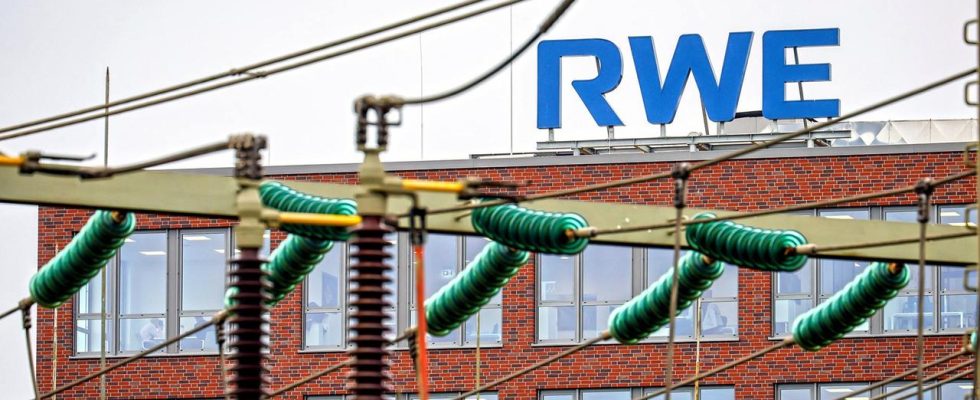At the energy company RWE, profits last year were almost a billion euros higher than expected – partly because of high electricity prices. However, the business will probably not continue like this.
There were certainly unusual words that the head of the energy company RWE, Markus Krebber, chose when presenting the business figures today: “2023 was characterized by a very good business result.” Quite matter-of-factly, “very good, nothing more.” Krebber has apparently deliberately avoided cheering arias. Because Germany’s largest electricity producer has a total of 4.5 billion euros in net profit in the company’s coffers, a whopping increase of 40 percent – that is also due to them high electricity prices. RWE benefited financially from the energy crisis.
The Essen-based energy multinational no longer supplies households, but sales to large customers or on the electricity exchange – for example to municipal utilities and large customers – were very lucrative. And that’s not just because of the coal-fired power plants. CFO Michael Müller calculates: “Last year, 35 percent of our electricity came from renewable sources, with electricity generation from gas coming in second place and electricity production from coal coming last.” Accordingly, coal and nuclear energy only provide eight percent of RWE’s profits.
The turnaround in 2018 is paying off
In fact, RWE completed a U-turn in 2018 – with a new focus on “green” energy, wind and solar. This is now paying off – and RWE has also spent a lot of money on it: “Over eleven billion euros last year. A look at the last three years shows: In total, we have expanded our international core business for a total of around 20 billion euros,” said CEO Krebber.
“Green” is now core business. Coal and nuclear were officially and demonstratively described as “exit deals” in the annual report today. RWE does not want to spin off or outsource the politically controversial lignite-fired power plants because they are particularly harmful to the climate – out of social responsibility for the employees, as RWE boss Krebber emphasized again today.
But these reactors have an expiry date and will be gradually shut down by 2030: “In just over two weeks we will finally shut down the three lignite blocks in the Rhenish mining district that were activated by the federal government for security purposes during the energy crisis. We are also switching both of them off as planned 600-megawatt coal-fired units in Neurath, whose operation had been extended by law,” said Krebber.
Less revenue expected for 2024
However, the extraordinarily high profits at RWE will not continue. Because wholesale prices have now fallen significantly again. “I think we were all surprised at how quickly electricity prices fell. Which is of course good for the location,” said the CEO. For RWE, on the other hand, less: Because the electricity generated is sold cheaper, the net profit this year will probably only be half as high. But maybe the predictions are wrong again.
At least that’s what many city treasurers are likely to hope. Because 80 cities and districts own shares in the company – mostly for historical reasons. These are primarily municipalities in North Rhine-Westphalia, Lower Saxony and Rhineland-Palatinate. And they are happy, because after the billion-dollar profit, RWE is increasing its dividend: the energy company is paying out 744 million euros as a profit share. This is a welcome additional income for many urban households.
Jörg Marksteiner, WDR, tagesschau, March 14, 2024 4:27 p.m

